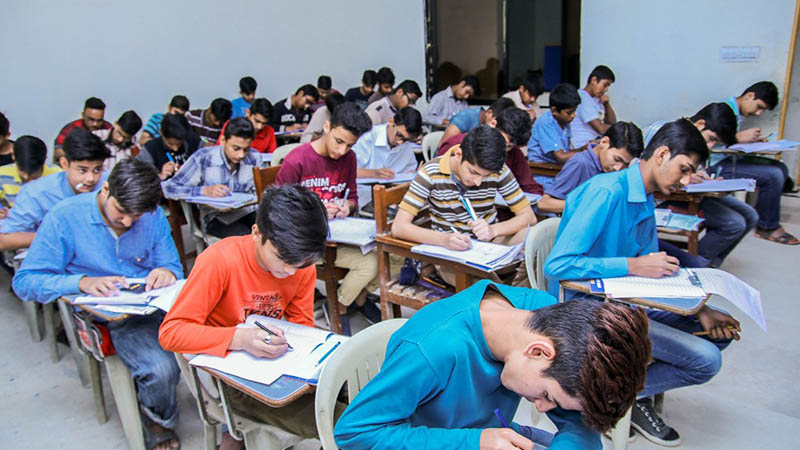KARACHI: Any time of the day you take a walk towards Gulshan-e-Iqbal 13-D1 or cross the Waterpump roundabout, you will see scores of students rushing towards their coaching centres. Whether early in the day or late at night, the streets will be abuzz with children walking to their respective tuition centres.
It makes one wonder whether the role of schools and colleges has become secondary and whether students now prefer to go to coaching centres rather than going to their institutions. The Upcut contacted Sir Ahsan Abdullah Patel, a Physics and Math teacher for both Karachi Board and Cambridge for 15 years, to comment on the said matter.
According to him, the absence of students from schools and colleges (especially those operated by the government) can be attributed to various reasons. “Over the last decade, it has become a prevailing mindset among the students that they won’t be taught anything in the government colleges,” says Patel.
“Let’s not even get started about the government schools. Especially the ones that are in Sindh,” adds Patel. He says that one cannot blame students for going to coaching centres since their college professors would advertise their coaching centres in their regular college classes in the first place.
DON’T BLAME THE STUDENTS, BLAME THE TEACHERS
“How can you blame the students if they decide to stay at home when the teacher tells them that studying at a coaching centre would rather help them?” comments Patel. He is not wrong. The scribe has witnessed himself as to how teachers at government colleges in Karachi force students to join their respective coaching centres. Most teachers lure the students by giving them false hopes of providing the question paper one day before the final exam.
This whole exercise is carried out rather overtly, and teachers provide the question paper to students in the name of “Important Questions” one or, in some cases, two days before the exams.
“Things have improved in the last four years, and teachers are now pressured to take their classes. But, that said, we are miles away from a significant improvement in the education sector,” says Patel.
LACK OF FACILITIES IN SCHOOLS AND COLLEGES
He also adds that most students opt for coaching centres simply because they need to get basic facilities in school and study in air-conditioned classes. “Sometimes, the fans are not working, whereas most colleges do not have a proper sound system for an average classroom with a seating capacity of 120 students. How can you expect the students to take notes from the back of the class if they cannot listen to the teacher?” questions Patel.
Answering a question on whether the coaching centres have overtaken schools and colleges, Patel believes that they have. “Coaching centres now provide students with extracurricular activities, further expanding the gap between tuition centres and traditional schools and colleges. Students now get farewell parties, designated Sports Day, special attention from teachers, neat classrooms with ACs and projectors,” he explains.
To add more to his claims, he says that even students of private schools and colleges are happy to pay more to coaching centres than they have to pay to their respective institutions.
PARADOX FOR CAMBRIDGE STUDENTS
However, he also offers an interesting insight into how consumer behaviour among students is also changing amidst tough economic challenges for Cambridge students.
“It’s like a paradox. Complete opposite of what’s happening to students of Karachi Board. Students from our local Board prefer coaching centres because they find them attractive. In contrast, students from Cambridge prefer coaching centres because affordability has become a serious issue for them. They would rather take the exams privately than enroll in expensive schools and colleges,” says Patel.
